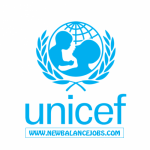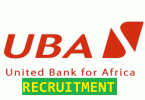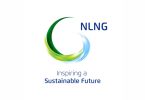
United Nations International Children's Emergency Fund (UNICEF)
United Nations International Children’s Emergency Fund (UNICEF) works in some of the world’s toughest places, to reach the world’s most disadvantaged children. To save their lives. To defend their rights. To help them fulfill their potential. Across 190 countries and territories, we work for every child, everywhere, every day, to build a better world for everyone.
We are recruiting to fill the position below:
Job Title: Information Management Officer
Job No: 556937
Location: Maiduguri, Borno
Contract Type: Temporary Appointment
Level: NO-1
Categories: Education
Duration: 364 days (renewable)
Supervisor: Education Manager, P-4, Post # 105521
How Can You Make a Difference?
- Under the supervision of the Education Manager, the Information Management Officer will manage the collection, analysis, and sharing of information/data that is important for the sector partners to make informed (evidence-based) strategic decisions.
Summary of Key Functions / Accountabilities
Under the overall supervision and general guidance of the Education Manager and the Education Sector Coordinator, Information Management Officer will be responsible for the below-mentioned tasks and outputs:
- Provision of IM services, including mapping, to the Sector/Education program for decision making including data collection, collation, analysis, and dissemination.
- Adapt existing in-country information management approaches for collecting, analyzing and reporting Sector activities and resources, and identifying information gaps
- Work with the OCHA Information Management Specialist to develop appropriate supportive strategies
- Facilitate effective linkages with all Education Sector stakeholders, including OCHA, and national actors, for enhanced capacity and gap identification.
- Use GIS for map production and geographic data management
- Adopt and promote the use of global standards for information management for inter-operability
- Manage flows of information and dissemination in an appropriate way, including website management
- Manage an inventory of relevant documents on the humanitarian situation
- Support the development and analysis of needs assessment and monitoring programmes
- Provide information management leadership in assessments and monitoring, including joint assessments and training
- Support the Education Sector developing/adapting standards and indicators for monitoring the progress and the effectiveness of humanitarian response within the Sector, taking into account national standards or guidelines, as well as globally agreed standards such as the Inter-Agency Network on Education in Emergencies (INEE) Minimum Standards.
- Establish and maintain information databases that consolidate, analyses and report/disseminate information critical to decision making
- Maintain monthly reporting from Sector participants, including 5Ws (‘Who does What, Where, When and for Whom?’ databases)
- Support the estimation of spatial and temporal gaps, overlaps and coverage of Sector activities and projects.
- Work with Cluster/ participants to identify information gaps at national and sub-national levels and propose ways to bridge those gaps
- Wherever possible and/or appropriate, ensure that IM supports national information systems, standards and builds local capacities. Maintain appropriate links with relevant Government, State and local authorities in order to strengthen, not replace or diminish national efforts and work closely with government and MoE to develop EMIS systems to include conflict sensitive data for improved educational planning.
- Contribute to drafting funding proposals and donor reports for common appeals, including collecting inputs from partners for joint sector documents.
- Lead on the preparation of SitRep inputs with emphasis on Sector plans, targets, and achievements
- Develop and strengthen information management capacity through the training of Sector members Contribute to the core Sector functions
- Where there is both a national and a sub-national cluster, the post holder will ensure that there is effective communication, reporting, engagement, and coordination between the two levels
Requirements
To qualify as an advocate for every child you will have:
- A University Degree in Information Systems/Information Management, Statistics, Mathematics, Data Management, Computer Science, or a related field is required. Formal training in sector information management is an advantage.
- Minimum one (1) year of similar work experience in Information Management preferably with NNGOs/INGOs and/or the UN is required. Experience in major emergency response relevant to the sector is highly desirable.
- Excellent written and spoken English is required. Working knowledge of the local languages (Hausa and Kanuri) is highly desirable.
Language:
- Excellent written and spoken English is required. Working knowledge of the local languages (Hausa and Kanuri) is highly desirable.
UNICEF competencies required for this post are:
- UNICEF’s values of Care, Respect, Integrity, Trust, and Accountability (CRITA) and core competencies in Communication, Working with People and Drive for Results.
The UNICEF competencies required for this post are:
- Demonstrates Self Awareness and Ethical Awareness (1)
- Works Collaboratively with others (1)
- Builds and Maintains Partnerships (1)
- Innovates and Embraces Change (1)
- Thinks and Acts Strategically (1)
- Drives to achieve impactful results (1)
- Manages ambiguity and complexity (1)
Method of Application
Interested and qualified candidates should:
Click here to apply
Application Deadline 21st November, 2022 (W. Central Africa Standard Time).
Note
- Only shortlisted candidates will be contacted and advance to the next stage of the selection process.
- UNICEF appointments are subject to medical clearance. Appointments are also subject to inoculation (vaccination) requirements, including against SARS-CoV-2 (Covid). Government employees that are considered for employment with UNICEF are normally required to resign from their government before taking up an assignment with UNICEF. UNICEF reserves the right to withdraw an offer of appointment, without compensation, if medical clearance is not obtained, or necessary inoculation requirements are not met, within a reasonable period for any reason.
- UNICEF is here to serve the world’s most disadvantaged children and our global workforce must reflect the diversity of those children. The UNICEF family is committed to include everyone, irrespective of their race/ethnicity, age, disability, gender identity, sexual orientation, religion, nationality, socio-economic background, or any other personal characteristic.
- We offer a wide range of benefits to our staff, including paid parental leave, breastfeeding breaks and reasonable accommodation for persons with disabilities. UNICEF strongly encourages the use of flexible working arrangements.
- UNICEF has a zero-tolerance policy on conduct that is incompatible with the aims and objectives of the United Nations and UNICEF, including sexual exploitation and abuse, sexual harassment, abuse of authority and discrimination. UNICEF is committed to promote the protection and safeguarding of all children. All selected candidates will, therefore, undergo rigorous reference and background checks, and will be expected to adhere to these standards and principles. Background checks will include the verification of academic credential(s) and employment history. Selected candidates may be required to provide additional information to conduct a background check
To apply for this job please visit jobs.unicef.org.






